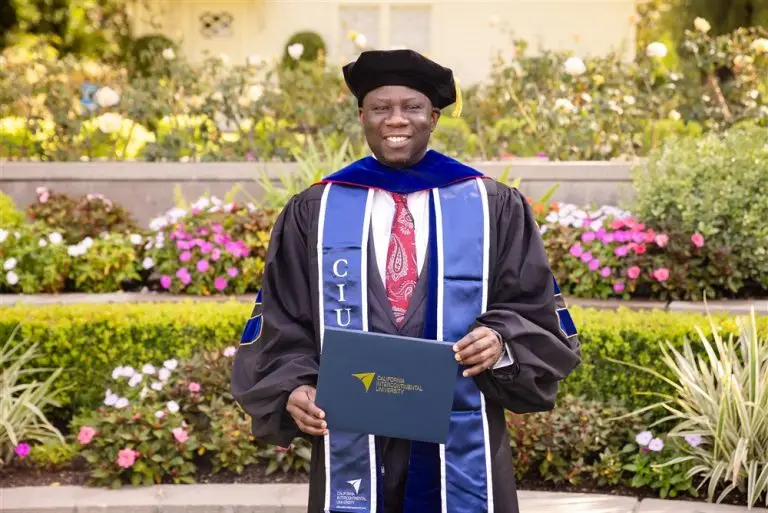In this article, we’ll put up DBA vs MBA and review what makes each unique.
So, you’re considering taking your business acumen to the next level, but the alphabet soup of graduate degrees is making your head spin. Let’s break it down: there’s the Doctor of Business Administration (DBA) and then there’s the Master of Business Administration (MBA). Each offers unique personal and professional development paths, tailored to different career goals and aspirations.
Deciding between an MBA and a DBA isn’t quite like a forked path with two options in front of you, since they represent two different stages of professional development. In most cases, the progression goes bachelor’s degree, then master’s degree, then a doctorate degree.
Chances are, you already have or are in the process of acquiring a master’s, and you’re now wondering whether to pursue a DBA to advance it further.
In this article, we’ll go over:
- The key differences between a DBA vs an MBA.
- The breadth and depth of requirements and results stemming from both.
- How a DBA sets you apart from others with an MBA.
Also check out: DBA vs PhD in Business Administration.
Quick Glance: DBA vs MBA
Coursing an MBA is your introduction to the higher workings of the business world—a journey with a bit of everything.
- Duration: 10 to 20 months.
- Focus: Broad business management knowledge.
- Course Load: 12 courses.
- Key Feature: General business education.
Meanwhile, a DBA is your deep dive. A thorough commitment that turns you into a business problem-solving master.
- Duration: 2.5 to 3.5 years.
- Focus: Specialized expertise in a business practice area.
- Course Load: 20 courses, including a dissertation.
- Key Feature: Research and problem-solving with real organizations.
Deep Dive: Coursework and Scope
MBA Highlights:
- Breadth of Knowledge: Covers a wide range of business topics.
- Course Requirements: About half the writing assignments of a DBA program.
DBA Highlights:
- Specialized Knowledge: Focuses on becoming an expert in a specific field.
- Rigorous Assignments: Double the coursework writing requirements compared to MBA.
- Core and Dissertation: 14 core courses leading to a practice-oriented dissertation.
An MBA program typically comprises 12 courses designed to impart a broad knowledge base in business and management principles. In contrast, a DBA program extends to 20 courses, with a significant portion dedicated to developing specialized expertise and practical skills in a specific area.
DBA students engage deeply with their subjects, doing about double the workload of MBA counterparts. This rigorous curriculum includes 14 core courses, culminating in a dissertation or Doctoral Research Project that demands students to become experts in their chosen topic by addressing real-world problems in collaboration with an organization.
Skill Sets: DBA vs MBA
- MBA skills: General business management understanding for administrative roles.
- DBA skills: Deeply specialized analytical and problem-solving capabilities for real-world scenarios.
While the MBA provides a general overview of business concepts, the DBA delves deeper, enhancing students’ analytical skills and practical application of knowledge.
The expectation for DBA students is markedly higher, reflecting the program’s focus on cultivating specialists capable of solving complex organizational challenges. This approach benefits students’ personal growth and aligns with the demands of companies seeking problem-solving capabilities.
Timeline and Flexibility: DBA vs MBA
- MBA: 10 to 20 months.
- DBA: 2.5 to 3.5 years.
The duration of study differs significantly between the two, as an MBA typically spans 10 to 20 months, while a DBA can be completed in two and a half to three and a half years.
The variation is because both programs offer flexibility; students may choose to accelerate their studies by taking multiple courses concurrently. Keep in mind that this can be more challenging in the DBA program due to its intensity and the need to maintain high academic standards.
The Crucial Component: Research and Real-World Application
- MBA Focus: Emphasizes theoretical knowledge.
- DBA Focus: Centers on applying theory to solve practical business problems.
A distinguishing feature of the DBA is its emphasis on applied research. Unlike MBA students, who primarily focus on theoretical studies, DBA candidates are expected to undertake a practical dissertation project that addresses real business issues in partnership with an external organization. This hands-on experience is invaluable, equipping students with the skills to identify and resolve problems—a quality highly sought after by employers.
Reputation and Career Impact: DBA vs MBA
MBA:
- Widely recognized and valued across industries.
- Opens doors to management and leadership positions.
- Facilitates promotions and job transitions.
DBA:
- Differentiates candidates in specialized fields.
- Essential for careers in academia and research.
- Valued in industries prioritizing high-level expertise.
Having a Master’s in Business Administration is a widely recognized and valued achievement across various industries for its comprehensive coverage of business management principles.
However, having a DBA to your name can move your career even further, as it is seen as a more specialized qualification that can differentiate candidates in the job market, particularly in roles requiring high-level analytical and problem-solving skills. This distinction is especially pronounced in academia and research, where a DBA is indispensable for teaching and scholarly work.
For international students, it should be noted that obtaining a DBA from a recognized institution in the United States can significantly enhance their career prospects.
Earning expectations: DBA vs MBA Salary
- Master’s degree weekly earnings: $1661.
- Doctorate degree weekly earnings: $2083.
According to data from the U.S. Bureau of Labor Statistics, professionals with doctorate degrees out-earn those with master’s degrees by about 20% – with weekly earnings averaging $1661 for master’s and $2083 for doctorates, in U.S. Dollars.
On top of that, individuals with doctorate degrees have better chances of being employed. The unemployment rate is 1.0% for doctorates and 1.9% for master’s – almost twice as high.
The Progression: MBA to DBA
- A logical step for deepening expertise after an MBA.
- Direct transition preferred by many, with considerations for individual career goals.
- Especially beneficial for international students seeking prestige and opportunities in the U.S.
For many, pursuing a DBA after completing an MBA represents a natural progression in their academic and professional journey, allowing them to specialize further and become authorities in a particular domain. While transitioning directly from an MBA to a DBA is common, the decision should be tailored to individual career goals and circumstances.
Decision Time: MBA, then DBA?
In summary, while the MBA and DBA offer valuable pathways to career advancement, they cater to different professional objectives and learning preferences. Prospective students should carefully consider their career goals, academic interests, and the balance between theoretical knowledge and practical application when choosing whether to pursue a DBA.
Whether you aim to lead in business practice or contribute to academic research, choosing the right path is a step toward defining your professional legacy.












